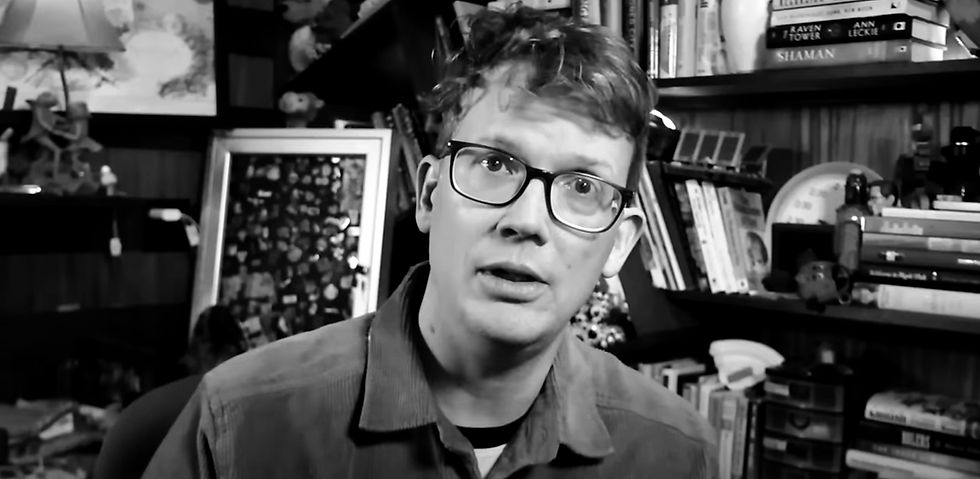The Tragedy of Killmonger
- Anthony Cruz
- Nov 26, 2022
- 4 min read
Updated: Mar 22, 2023
Warning: Spoilers for Black Panther: Wakanda Forever (2022) Ahead
This past weekend, I watched Black Panther: Wakanda Forever. One scene that stood out to me was the appearance of my favorite villain in the MCU, Killmonger (played by Michael B. Jordan), during the ritual in which Shuri took the herb to become the next Black Panther. Instead of her own blood family, T’Challa (original Black Panther) or her mother coming to greet her in the ritual, it was her cousin Killmonger. He gets to lay down some truth bombs, vocalizing the things Shuri knows but won’t acknowledge: that her brother and father weren’t cruel or ruthless enough to offer her the advantage she wants in the upcoming fight against Namor. After the movie I thought, was Killmonger right? Was his anger towards Wakanda justified?
Killmonger came to Wakanda as a conqueror. His father N’Jobu facilitated the theft of vibranium in an attempt to arm black people all over the world against their oppressors. N’Jobu is killed by T’Challa’s father, T’Chaka, for his insubordinate attempt to end the centuries of isolation that have kept Wakanda safe. T’Chaka abandons Killmonger in Oakland, leaving Killmonger literally, and figuratively, an orphan. An orphan who sees in his lost homeland a chance to avenge the millions of black people extinguished in The Void, and those who still suffer in it’s wake. Killmonger’s stated purpose, to liberate black people all over the world, has sparked a lively discussion over whether he’s a bad guy to begin with. What’s so bad about black liberation? It’s amazing that Ryan Coogler’s villain has even inspired this debate, it’s proof to how extreme and complex the character is.
Killmonger’s goal is, in his eyes, the global liberation of black people. But that isn’t “truly” his goal, as Coogler makes clear in the text of the script and in Killmonger’s interactions with other characters — Killmonger’s goal is world domination. “The sun will never set on the Wakandan empire,” Killmonger reveals, he sees no future beyond his own reign. He wants to burn the magic herbs Wakandan monarchs use to gain their powers because he doesn’t even intend to have an heir.
Yet, because Killmonger’s plans are rooted in a recognizable idealism and a wounded soul, the audience is supposed to empathize with him. Viewers are meant to mourn him as T’Challa does when he dies, invoking his ancestors who chose to be consumed by The Void rather than struggle in oppression. When T’Challa goes to the spirit world, he sees his ancestors. While when Killmonger goes, in one of the most moving scenes in the film, he only sees his father; the rest of his ancestors have been lost to The Void. He is alone in a way T’Challa can never grasp. So like his father N’Jobu, Killmonger is rebellious. “We can rule over them all the right way,” N’Jobu says during a flashback.
Despite his ambitions for global domination, Killmonger does something remarkable and perhaps unmatched for the superhero genre — he wins the argument. When T’Challa learns that his father killed N’Jobu and abandoned Killmonger, he is horrified. The truth shatters the faith in his father and in his father’s certainty. On the spirit plane, T’Challa declares to the manifestations of his ancestors, the previous Black Panthers, “You were wrong. All of you, you were wrong.” Where was Wakanda? Wakanda failed. Killmonger was right. He is blinded by his pain to the evil of his own methods, but he is correct that Wakanda abandoned its responsibility to use its unmatched power to protect black people around the world. They could’ve stopped the endless march of souls into The Void. Yet, they didn’t.
Killmonger is dead, but he’s changed Wakanda forever, he ended the isolation that defined it’s existence for all time, and unleashed a powerful new ally to oppressed black people all over the world. Is this insufficient? Too little, too late? Maybe. But it is absurd to think that Killmonger’s preferred plan of Wakandan world leadership through massive bloodshed, using a method that’s never once worked as intended, is a preferable outcome.
Overall, Killmonger just wanted help, he was left on his own and had to fend for himself for most of his life, his upbringing made him who he is today. While the Wakandans appeared oblivious to the outside world’s struggles thanks to their resources and wealth, Killmonger knew exactly how harsh and evil the world was and wanted to make it a better place. What makes Killmonger such a great villain is he’s so relatable. His father was snatched from him by his own family members that he knew nothing about. He was exposed to oppression and violence, he was already desensitized to death to the point where he couldn’t even cry over his own father’s death. Witnessing poverty, police brutality, gang violence and racism can certainly drive anyone into villain status. Wakanda remained protected and untouched. The attractive country is one of the most advanced places in the world and purposely stayed completely isolated. Meanwhile, the boot of oppression applied a steady, brutal pressure on the necks of others. While his deeply-rooted anger is extremely relatable, it blinded him.
_edited.png)



Comentários